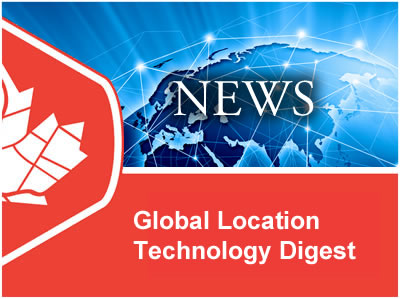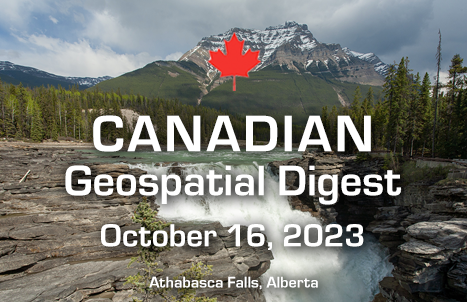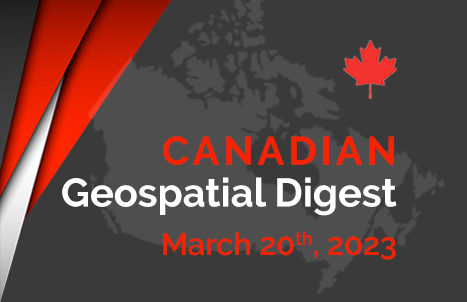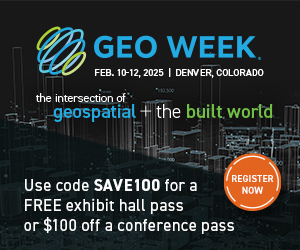Your Global Geospatial Briefing for March 11th: Autonomous cars; Hong Kong spatial data; smart phone data; YGP Award
Who will own the data collected by autonomous vehicles?
Who will own the data collected by autonomous vehicles? That is the question being assessed by researchers at Dartmouth College. Data privacy, ownership, cyber security and public safety are all issues related to self-driving cars in the context of the mapping data collected by companies that create navigation technology. According to lead researcher Professor Luis F. Alvarez León: “Self-driving cars have the potential to transform our transportation network and society at large. This carries enormous consequences given that the data and technology are likely to fundamentally reshape the way our cities and communities operate.” Researchers like León are calling for the developers of autonomous vehicle “black boxes” to exercise transparency around what will happen to the data amasses by navigation devices.
Hong Kong Dedicates $300 million to data infrastructure
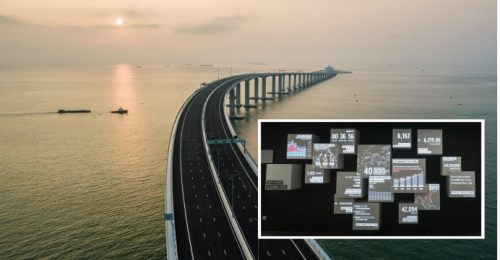
Image from AFP/Bloomberg
The Hong Kong SAR government has dedicated HK$300 million for setting up a “data supermarket”, or the Common Spatial Data Infrastructure (CSDI). The newly released budget in Hong Kong is reserving considerable space for a “spatial service information platform” to coincide with the development of smart city that is part of the government’s Outline Development Plan for the Guangdong-Hong Kong-Macao Greater Bay Area (GBA Plan). Why the focus on geographic information? Like similar plans in the United Kingdom and Australia, putting the massive amounts of data that is centered around geographic location in a form that people can use will generate benefits in excess of the costs involved. Despite the challenges, Hong Kong is strengthening its lead in forming infrastructure around spatial data.
Smart phone tracking turns up insightful data
Is location data part of a big Ponzi scheme? Data tied to geographic positioning (geospatial data for the insiders) is useful for everything from fueling a fleet of trucks at the cheapest stations to isolating the political leanings of potential customers—to tracking the phones of philandering spouses (yes, it happens). Financial data comes at a premium, and companies like Thasos Group from New York takes data from mobile phones around the world develop real-time location data that can be trusted. Thasos has even published a series of use cases to show how tracking smart phone locations provide geospatial data filled with high-quality to equal what Google and Apple have in their vaults.
Digital Earth Africa captures a changing continent
Digital Earth Africa (DE Africa) is a new program that will build the world’s largest platform for accessing decades of  satellite imagery of Africa’s land and seas. The program will also translate this data into ready-to-use insights about environmental conditions like soil and coastal erosion, agriculture, deforestation, desertification, and more. To understand the rich environment and immense challenges still faced on the continent, the DE Africa will centralize the operations, governance and work of the program in Ethiopia and make all analysis, products, and tools available to anyone on the continent. The information will provide reliable data on changes to Africa’s natural and built environment that is essential to decision making about agriculture, food security, mining, and water resources.
satellite imagery of Africa’s land and seas. The program will also translate this data into ready-to-use insights about environmental conditions like soil and coastal erosion, agriculture, deforestation, desertification, and more. To understand the rich environment and immense challenges still faced on the continent, the DE Africa will centralize the operations, governance and work of the program in Ethiopia and make all analysis, products, and tools available to anyone on the continent. The information will provide reliable data on changes to Africa’s natural and built environment that is essential to decision making about agriculture, food security, mining, and water resources.
Nominate yourself or a coworker for the Younger Geospatial Professional of the Year Award
In anticipation of the gathering of both the SPAR 3D Expo, the Younger Geospatial Professional (YGP) of the Year Award program is launching in cooperation with Lidar News. Younger Geospatial Professionals are encouraged to nominate themselves via a 2.5 to 3-minute video, explaining the following:
- Educational background and work history
- Professional accomplishments to date
- How you will encourage others to pursue excellence and leadership in their geospatial careers
- A brief overview of a presentation you would present at SPAR 3D Expo & Conference if selected
 Gene Roe, Managing Editor for Lidar News, stated of the award, “The Younger Geospatial Professional Award is a unique opportunity for an individual to engage with 3D professionals from around the world, while demonstrating their knowledge and leadership to their peers. By creating this award, we hope to bring attention to the need for supporting and encouraging younger geospatial professionals in their career development.” The deadline for video submissions is March 15th, 2019.
Gene Roe, Managing Editor for Lidar News, stated of the award, “The Younger Geospatial Professional Award is a unique opportunity for an individual to engage with 3D professionals from around the world, while demonstrating their knowledge and leadership to their peers. By creating this award, we hope to bring attention to the need for supporting and encouraging younger geospatial professionals in their career development.” The deadline for video submissions is March 15th, 2019.


